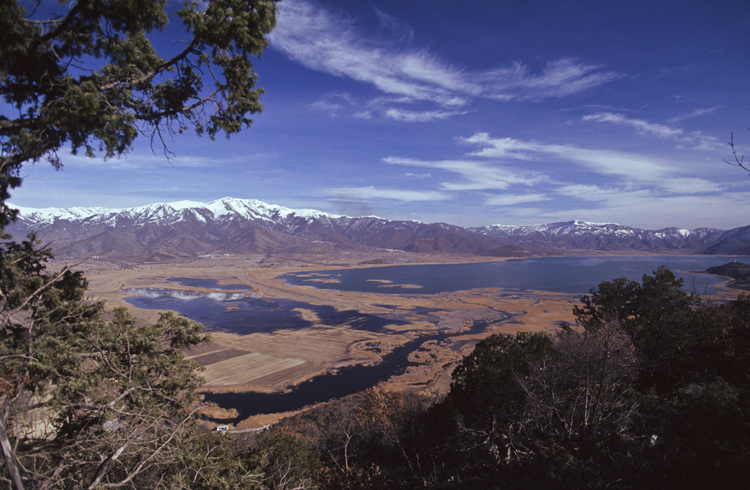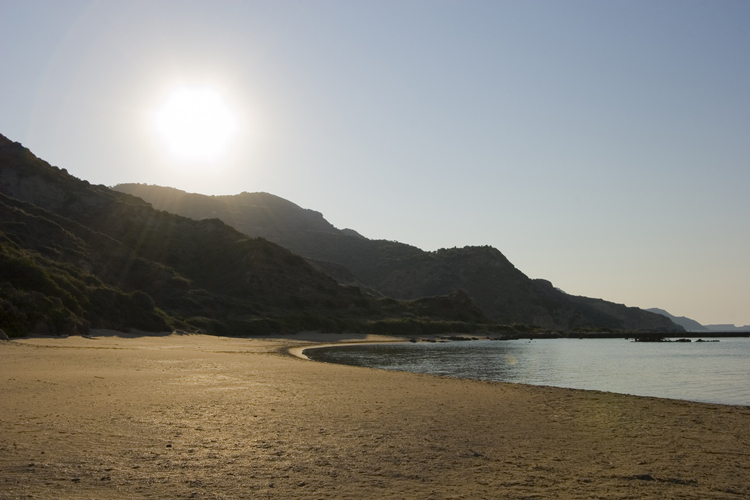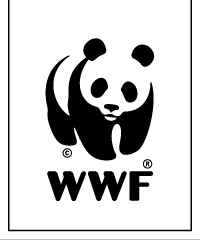Greece is biologically one of the wealthiest countries in the world, holding an outstanding diversity of ecosystems and species in a precious mosaic of forests, valleys, rivers, islands, lakes, mountains and sea. The most important pieces of the mosaic are none other than the protected areas of the country.
What Are Protected Areas?
They are the areas that host the most unique, fragile and valuable elements of our natural wealth. Protected areas are the jewels of Greek nature and are provided for in Greek, European and international legislation. They create a safety net for our country’s biodiversity and are, perhaps, its last refuge.

© A. Bonetti / WWF Greece
Greece has established national parks, nature protection areas and areas of absolute protection, while also including areas in the Natura 2000 network (based on the Birds Directive (2009/147/ΕC) and the Habitats Directive (92/43/ΕEC)). In addition, it has established protection areas based on international treaties. All of the aforementioned categories of areas and others, such as National Parks established by the Forest Code, make up the National Protected Areas System.
What Does WWF Greece Do?
WWF Greece seeks and promotes the development of an effective national protected areas system as part of a functional system for the protection of the Greek natural environment. We have intervened on multiple occasions in policy making regarding the natural environment by submitting concrete integrated proposals on forest protection and promoting truly sustainable fisheries. In general, we work to push the Greek economy onto a sustainable path that -among other features- will recognize the value of biodiversity and contribute to its conservation.

© A. Bonetti / WWF Greece
Furthermore, through our continuing presence in several ecologically important parts of the country, we gain experience and gather examples from the field projects in island wetlands, Evros, Zakynthos, Gyaros and Prespa, which help us influence national policy to lay the institutional, legal and administrative foundations to preserve these important areas and the species they host.
Were we to give a short account of the many aspects of our work for the protected areas of Greece, we would focus on the following points:
We Seek the Effective Implementation of Legislation
We continuously monitor the implementation of legislation. Through our evaluations and interventions, we aim to efficiently protect the most ecologically important areas. Notably:
- WWF Greece monitors the implementation of statutes related to biodiversity, such as the law on the conservation of biodiversity (Law 3937, Official Government Gazette Issue A60) and the Presidential Decree on the protection of small island and coastal wetlands (Official Government Gazette Issue on Compulsory Expropriations and City-Planning 229/19.06.2012).
- In 2010, we participated in a working group for the development of a National Biodiversity Strategy, one of the obligations of Greece emanating from the UN
- Convention on Biological Diversity. The adoption of the Strategy is still pending.
- We monitor the implementation of the Habitats Directive (92/43/EEC):
- In 2007, we submitted data for the second six-year report on the implementation of the Habitats Directive in Greece between 2001 and 2006.
- In September 2006, we took part in the evaluation of the implementation of the Habitats Directive in EU countries that was carried out by the WWF European Policy Office in cooperation with other environmental organizations.
- We participated in the evaluation of the implementation of the Habitats Directive in EU countries that was carried out by the WWF European Policy Office in June 2001.
- We monitor the implementation of the Ramsar Convention in Greece:
- In September 2011, we supported the proposal for a resolution for the protection of Mediterranean wetlands that Greece submitted to the Conference of the Contracting Parties to the Ramsar Convention.
- In November 2008, on the occasion of the 10th Meeting of the Conference of the Contracting Parties to the Ramsar Convention, WWF Greece submitted a memorandum outlining the continuously deteriorating state of the Evros Delta.
- In February 2008, in cooperation with two more environmental organizations, we completed the evaluation of the protection and management of Greek Ramsar wetlands.
- After the WWF’s interventions in the resolutions of the 2005, 2008 and 2012 meetings, Greece was called to inform the Secretariat of the Convention on the actions taken to conserve Ramsar Wetlands.
- In October 2005, on the occasion of the 9th Meeting of the Conference of the Contracting Parties to the Ramsar Convention, WWF Greece prepared a memorandum to draw the international community’s attention to the problems of Greek wetlands and push for their resolution:
- The Greek Ramsar sites: A parody of conservation
- The Greek Ramsar sites: What can be done?
- We participate in public deliberation on the designation of protected areas.

© A. Bonetti / WWF Greece
We Submit Documented Proposals on the National Protected Areas System
Designating an area as protected is only the first step to protecting these valuable cradles of biodiversity. An integrated and functional national protected areas system that ensures their protection, management and safeguarding is necessary, and such a system should be part of an overall nature conservation system. To that end, WWF Greece has taken the following actions:
- In October 2011, we presented a dialogue paper on improving nature conservation, outlining our views on a cohesive and efficient system for the protection of the natural environment.
- In October 2009, along with nine other environmental organizations, WWF Greece submitted a joint proposal regarding an integrated institutional framework for biodiversity conservation to the authorities of the Ministry of Environment, Energy and Climate Change.
- In September 2004, we completed the evaluation of the Greek protected areas system. In October of the same year, we organized the one-day conference Protected Areas: Be Part of the Solution, which was focused on concrete solutions to the problems that had been identified during the evaluation.
- In May 2005, we presented an updated report regarding the state of protected areas in cooperation with other environmental organizations.
- In June 2001, we organized a three-day working meeting entitled The Management of Protected Areas in Greece: Opportunities and Difficulties, which took place in the village of Monodendri with the participation of members of all the institutions concerned with protected area management in Greece.
- WWF Greece organizes specialized one-day conferences and seminars to inform and educate on protected areas.
We Push For and Contribute To the Adequate and Transparent Funding of the National Protected Areas System
Protected areas have many needs, which require funding to be fulfilled. Such needs cannot be addressed solely through the fund raising actions of the management bodies. Making good use of EU funding is a WWF priority reflected in our actions:
- We participate in the EU project Strenghtening the uptake of EU funds for Natura 2000.
- We took part in the Financing Natura 2000 – Guidance and Workshops program, which was carried out in all EU member states during 2006–2007 and included the organization of related seminars in Greece and Cyprus and the development of the Financing Natura 2000 Guidance Handbook.
We Participate in Environmental Protection Institutions
- Since 2003, we participate in the boards of Management Bodies of protected areas and in the Prespa National Park Management Body through the Society for the Protection of Prespa.
- We act as a representative for environmental organizations in the Committee “Nature 2000”, which also serves as a National Committee for Protected Areas.
- We also participated in the Monitoring Committees of the Operational Program “Environment” (2000-2006) and the Operational Program “Environment and Sustainable Development” (2007-2013).
Project leader: Ioli Christopoulou, This email address is being protected from spambots. You need JavaScript enabled to view it., 0030 210 3314893
Share this



